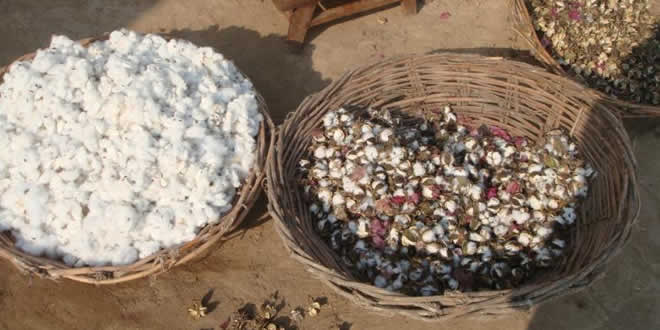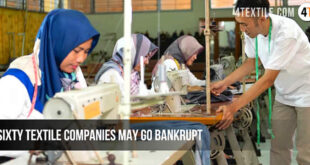Spinning mills cut output as demand from garment makers dips
Kuljit Pal Singh, a cotton grower from Jatri village in Bathinda, says the prospect of going to mandi with his produce is giving him goosebumps as he expects a much lesser price for his produce than the Rs 5,800 per quintal he got last year.
“The demand for cotton is low as the textile sector is facing a recession as bad as in 2008. Due to weakening demand by the spinning mills, our produce will sell at price than the MSP of Rs 5,425 per quintal. Only Cotton Corporation of India (CCI) buys the crop at the MSP. But the commission agents have decided not to allow the CCI to make direct purchase. As a result, we see a bleak prospect of selling the crop,” he rues.
His apprehensions don’t seem unfounded. Rajesh Jain, a commission agent in Maur Mandi, foresees much lesser price for the crop this year. “The arrivals have just begun. Last year, when we didn’t allow the CCI to purchase the crop directly, the mills were buying at higher rates. But this year, the crop will not fetch the higher price due to weakening demand,” he said.
Mridula Jain, chairperson, Shawl Club, Ludhiana, said besides domestic market, exports of garments were also down by 20-30%. “Since manufacturers go in for production after getting export orders, they have been forced to restrict the production due to weak demand. On the domestic front also, sales are not picking up despite festival season having started. Retailers are not willing to keep more stocks. As a result, the manufacturers have a little choice but to go in for consolidation and labour layoffs,” she said.
DL Sharma, MD, Vardhman Textiles, said one-third of the spinning mills’ installed capacity remained unutilised due to the weak demand. “This is because our biggest market for yarn – China – has started sourcing cotton from Vietnam. The demand from China has fallen by 35%. Also, our competitiveness at the global level is low because of embedded taxation. We have requested the Niti Aayog to give rebate on embedded taxation in yarn so as to boost exports,” he added.
 4Textile.com World Textile & Apparel Industry Events, News
4Textile.com World Textile & Apparel Industry Events, News







